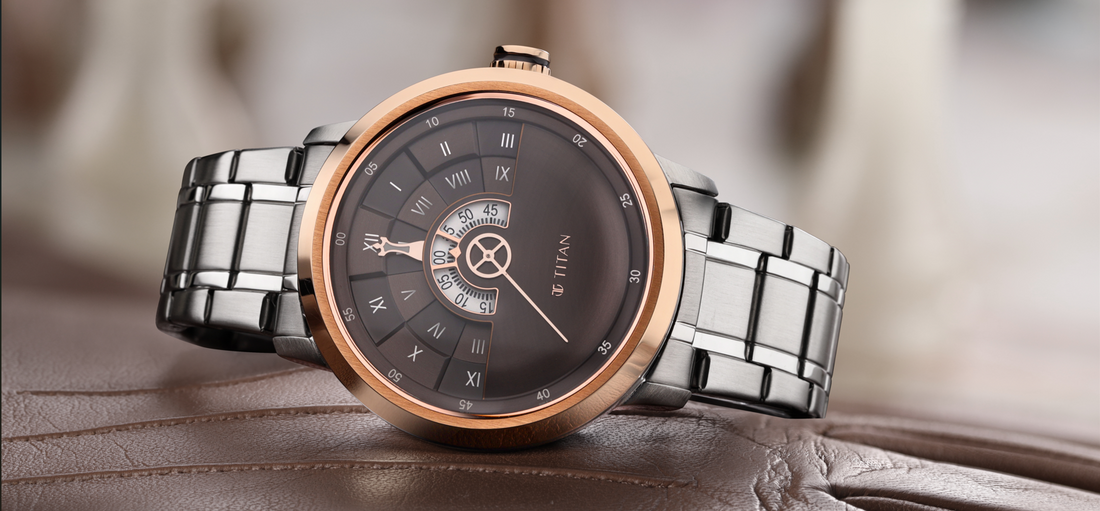In a world where time is of the essence, wrist watches are not just functional accessories but also cultural symbols that reflect our personal style and societal norms. Join us as we delve into the fascinating world of wrist watches from a cultural perspective, exploring how these timepieces have evolved to become more than just tools for telling time. Let's uncover the stories behind some of the most iconic watch designs and discover the hidden meanings woven into their intricate craftsmanship. So grab your favorite watch and let's embark on a journey through time with 'Wrist Watches: A Cultural Perspective.'
Why Wrist Watches are More Than Just Timepieces
Wrist watches have been an essential part of our daily lives for centuries. From being a simple tool to tell time, they have evolved into much more than just functional accessories. In fact, wrist watches hold a significant cultural value and have become a symbol of fashion, status, and identity.
In this article, we will delve into the cultural perspective of wrist watches and explore why they are more than just timepieces.
A Reflection of Personal Style
One of the primary reasons wrist watches are more than just timepieces is because they reflect one's personal style. The type of watch someone wears can convey their personality, taste in fashion, and even their profession. For instance, a sleek and minimalist watch may represent someone who values simplicity and elegance, while a chunky sports watch may portray an active lifestyle.
Furthermore, many luxury brands offer unique designs that cater to individual preferences. This makes wearing a wristwatch not only functional but also an expression of one's personal style.
A Status Symbol
In many cultures around the world, owning a high-end luxury watch is seen as a symbol of wealth and status. These timepieces often come with hefty price tags due to their prestigious craftsmanship and materials used. Therefore, owning such a watch can be perceived as a sign of success or social standing.
Some people even collect limited edition or rare vintage watches as investment pieces that appreciate in value over time. This further adds to the cultural significance of wristwatches as status symbols.
A Part of Tradition
Wristwatches also hold sentimental value in many cultures as they are passed down from generation to generation. In some families, it is customary for parents or grandparents to gift their children with heirloom watches on special occasions like graduations or weddings.
This tradition not only creates cherished memories but also serves as a reminder of family history and values. It also adds emotional value to the timepiece, making it more than just a functional accessory.
A Tool for Time Management
Despite the advent of technology, wristwatches remain an essential tool for time management. In our fast-paced world, being able to track time at a glance is crucial. Wearing a watch eliminates the need to constantly check one's phone or other devices for the time, allowing for better focus and productivity.
Wrist watches are much more than just timepieces. They hold cultural significance as reflections of personal style and status symbols while also serving practical purposes like keeping track of time. With their unique designs and sentimental value, wristwatches have truly become an integral part of our culture.
Cultural Significance of Wrist Watches: How Different Cultures View and Use Them
The cultural significance of wrist watches varies across different cultures and has evolved over time. These small yet functional accessories have become more than just a tool for telling time, they hold symbolic meanings and play important roles in various cultural traditions and practices.
In Western cultures, wrist watches are primarily seen as fashion statements or status symbols. It is not uncommon to see people owning multiple watches to match different outfits or occasions. In this context, the brand, design, and material of the watch often signify one's wealth and social status. Wearing a luxury watch can also be seen as a sign of success and accomplishment.
On the other hand, in many Eastern cultures such as Japan, wearing a wrist watch is not only about keeping track of time but also about respecting punctuality and being disciplined. In fact, it is considered impolite to be late in Japanese culture. Therefore, owning a reliable watch is highly valued as it represents responsibility and respect for others.
In some African cultures, wrist watches hold spiritual significance. Traditional healers or shamans may use certain types of watches during rituals or ceremonies for divination purposes. Similarly, in some Native American cultures, wrist watches were believed to have supernatural powers that could protect their wearers from harm.
Wrist watches also hold significant meaning in religious practices around the world. For instance, in Islam it is customary to align daily prayers with specific times indicated by the position of the sun on a watch dial known as 'prayer watches.' In Hinduism too, specific prayer times are determined by checking the position of stars on an astrological watch called 'Kundali.'
Moreover, many cultural celebrations involve gifting or receiving wrist watches as special tokens symbolizing love and appreciation. For example in China during weddings or business exchanges giving expensive Swiss-made watches conveys sincerity and trustworthiness.
Throughout history wristwatches have played diverse roles across different cultures – from being practical tools to symbols of status, spirituality, and tradition. Today, with the advancement of technology and the rise of smartphones, the use of wrist watches has shifted but their cultural significance remains strong. They continue to hold a special place in many cultures around the world and are still cherished as meaningful accessories.






